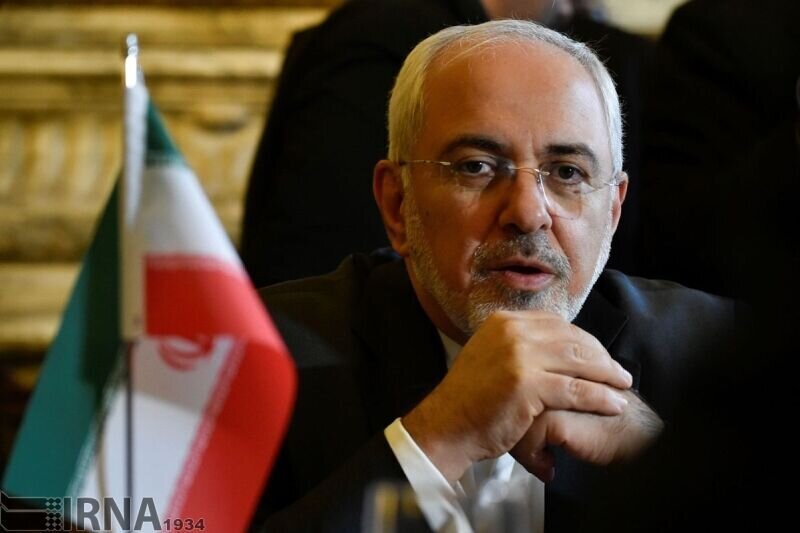U.S. maximum pressure has turned into ‘maximum deceit’: Iran

TEHRAN – Iranian Foreign Minister Mohammad Javad Zarif said on Sunday that the United States’ failed policy of maximum pressure on Iran has turned into “maximum deceit”.
“Having failed at ‘maximum pressure’, Secretary Pompeo is turning to ‘maximum deceit’,” Zarif tweeted.
Having failed at "max pressure", @SecPompeo's turning to "max deceit"
— Javad Zarif (@JZarif) September 15, 2019
US & its clients are stuck in Yemen because of illusion that weapon superiority will lead to military victory.
Blaming Iran won't end disaster. Accepting our April '15 proposal to end war & begin talks may.
Zarif’s comments came as U.S. Secretary of State Mike Pompeo blamed Iran for the Yemeni drone attacks on oil installations in Saudi Arabia on Saturday.
“Tehran is behind nearly 100 attacks on Saudi Arabia” and that “there is no evidence the attacks came from Yemen,” Pompeo tweeted.
Pompeo added, “The United States will work with our partners and allies to ensure that energy markets remain well supplied and Iran is held accountable for its aggression.”
Zarif said blaming Iran for the dangers ensuing the Saudi-led war on Yemen “won’t end the disaster”.
Iran’s four-point plan put forward in April 2015 is the remedy for the current situation, Zarif insisted.
“Blaming Iran won’t end disaster. Accepting our April 15 proposal to end war and begin talks may,” Zarif pointed out.
In April 2015, Zarif submitted a letter to Ban Ki-moon, then UN secretary general, outlining Iran’s four-point peace plan for Yemen.
The plan calls for an immediate ceasefire and end of all foreign military attacks, humanitarian assistance, a resumption of broad national dialogue and establishment of an inclusive national unity government.
Iran’s chief diplomat went on to say that the United States and its “clients” in the region are caught in the Yemen quagmire because they suffered from the illusion that possession of sophisticated arms would lead to victory.
“The U.S. and its clients are stuck in Yemen because of illusion that weapon superiority will lead to military victory,” Zarif stated.
Iranian Foreign Ministry spokesman Abbas Mousavi also responded to Pompeo’s claims, saying, “Such accusations and unfruitful remarks are meaningless within diplomatic framework.”
Mousavi said, “Even in the international relations, hostility has some logical framework which has been trespassed by the U.S. officials.”
The Foreign Ministry spokesman likened Pompeo’s remarks to plots by spy agencies to discredit a country in order to pursue their goals.
“The U.S. and its clients are stuck in Yemen because of illusion that weapon superiority will lead to military victory,” Zarif states.“Such remarks and actions resemble intelligence organizations’ planning to tarnish a country’s image and lay grounds for future moves,” Mousavi said.
He also said that the only way to ease tension in the region and end the Yemeni crisis are stopping the Saudi-led attacks on Yemen, ending Western countries’ political and arms aid to aggressors and also finding a political solution.
Drone attacks by Yemenis struck two key oil installations inside Saudi Arabia on Saturday, damaging facilities that process the vast majority of the country’s crude output and raising the risk of a disruption in world oil supplies.
Writing on his Twitter account, U.S. Senator Chris Murphy said Pompeo’s claim is “irresponsible simplification and it’s how we get into dumb wars of choice.”
Saudi Arabia launched military campaign against Yemen in March 2015 with the aim of eliminating the Yemeni Houthi Ansarullah movement and reinstalling Yemen’s former President Abdrabbuh Mansour Hadi, who has close ties with the Saudis.
Failing to achieve either of its goals, Riyadh has not stopped bombing Yemeni targets, creating a protracted conflict which has so far led to the killings of over 12,000 Yemenis, starvation of 14 million people, and the destruction of the poor country’s infrastructure.
NA/PA
Leave a Comment